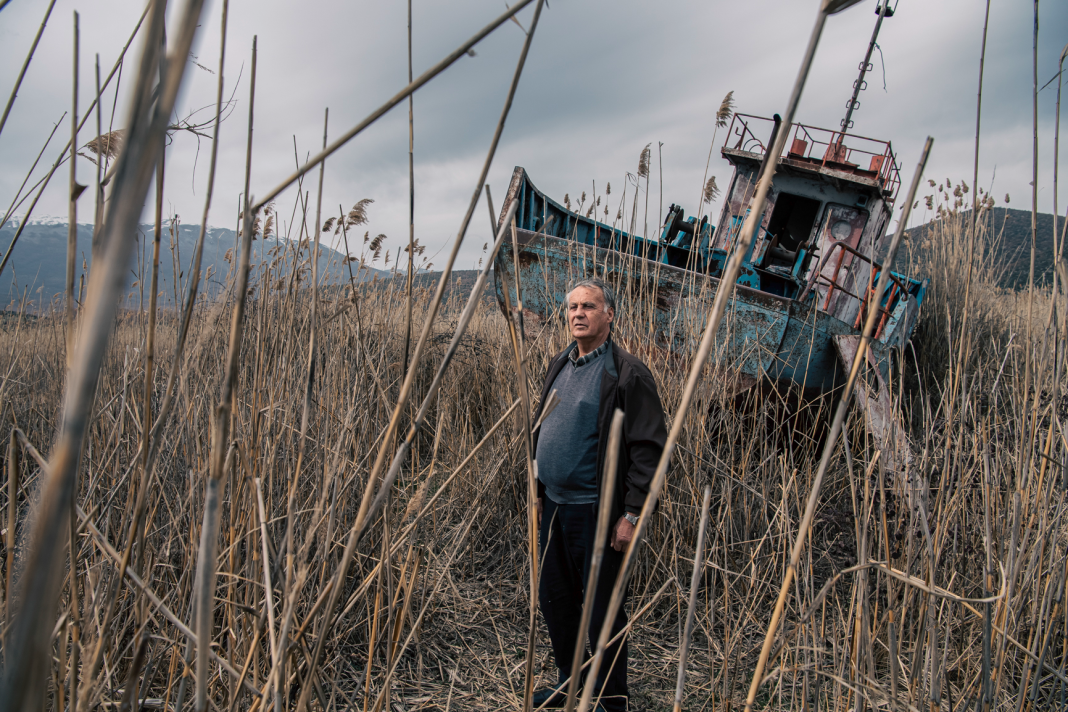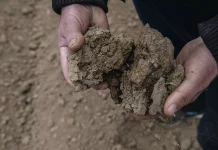Great Prespa (Prespa e Madhe) is evaporating due to rising temperatures and a lack of rainfall. Climate change is turning the lake into a desolate landscape, with overturned boats and sun-dried mussel shells. Experts warn that this is a critical year for the lake’s ecosystem and biodiversity.
Esmeralda Topi and Atdhe Mulla
In the village of Kallamas, by the shore of Great Prespa Lake, the view has changed drastically. Where the lake’s waters once gently rippled a year ago, today there is only mud, overturned boats, tangled fishing nets, and mussel shells dried by the sun. The significant retreat of the water level clearly reflects the consequences of climate change on the lake.
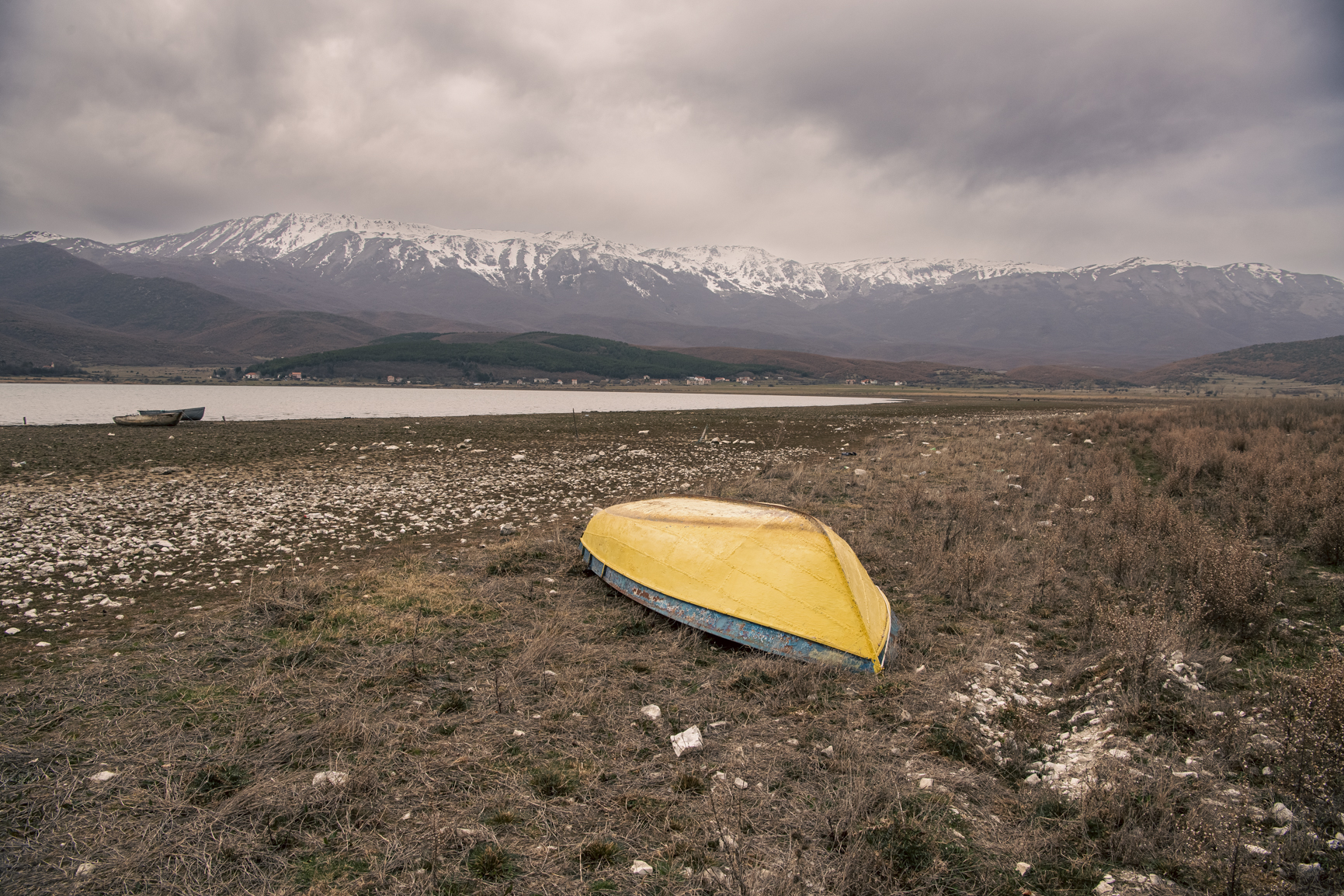 Photographer: Atdhe Mulla
Photographer: Atdhe Mulla
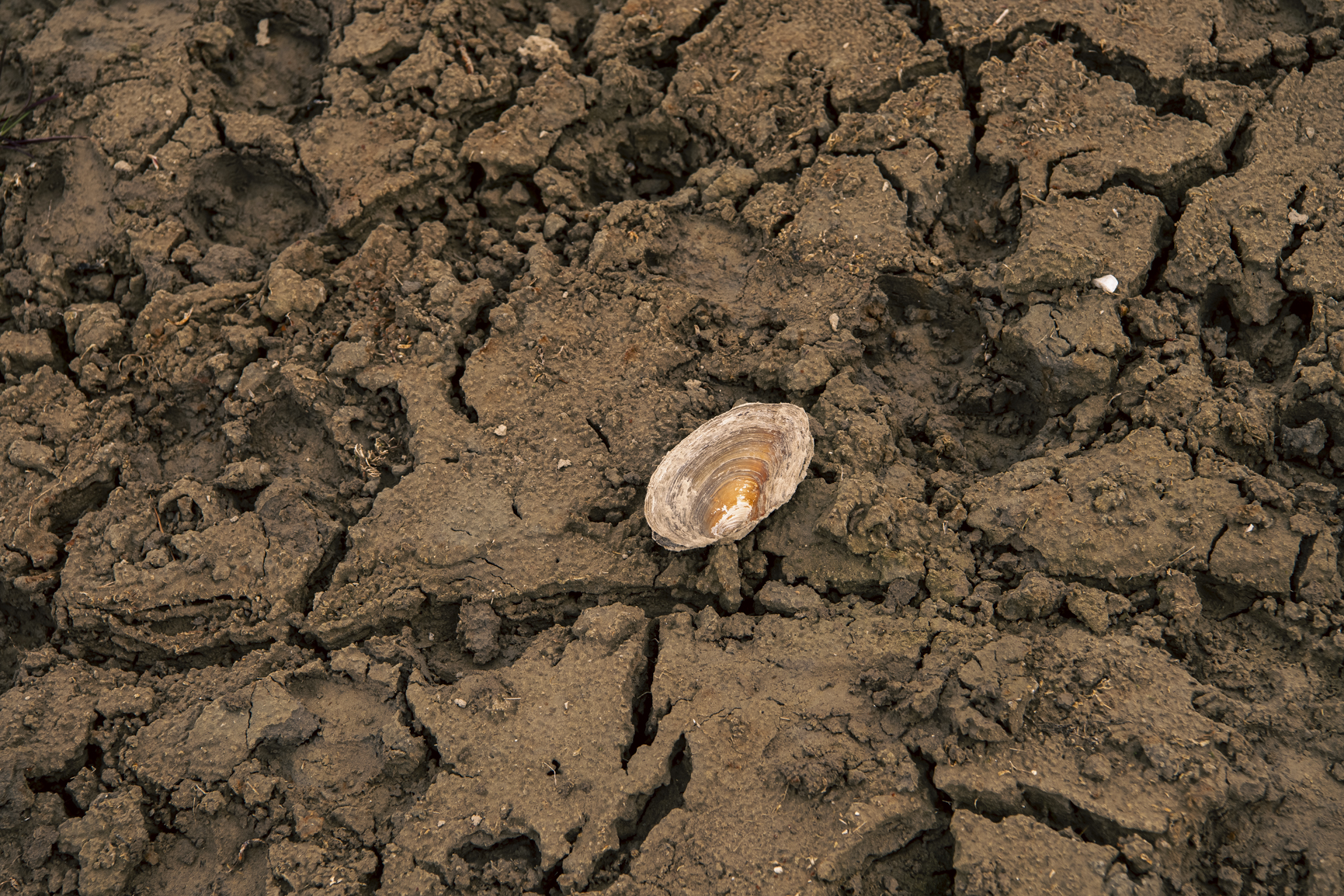
Photographer: Atdhe Mulla
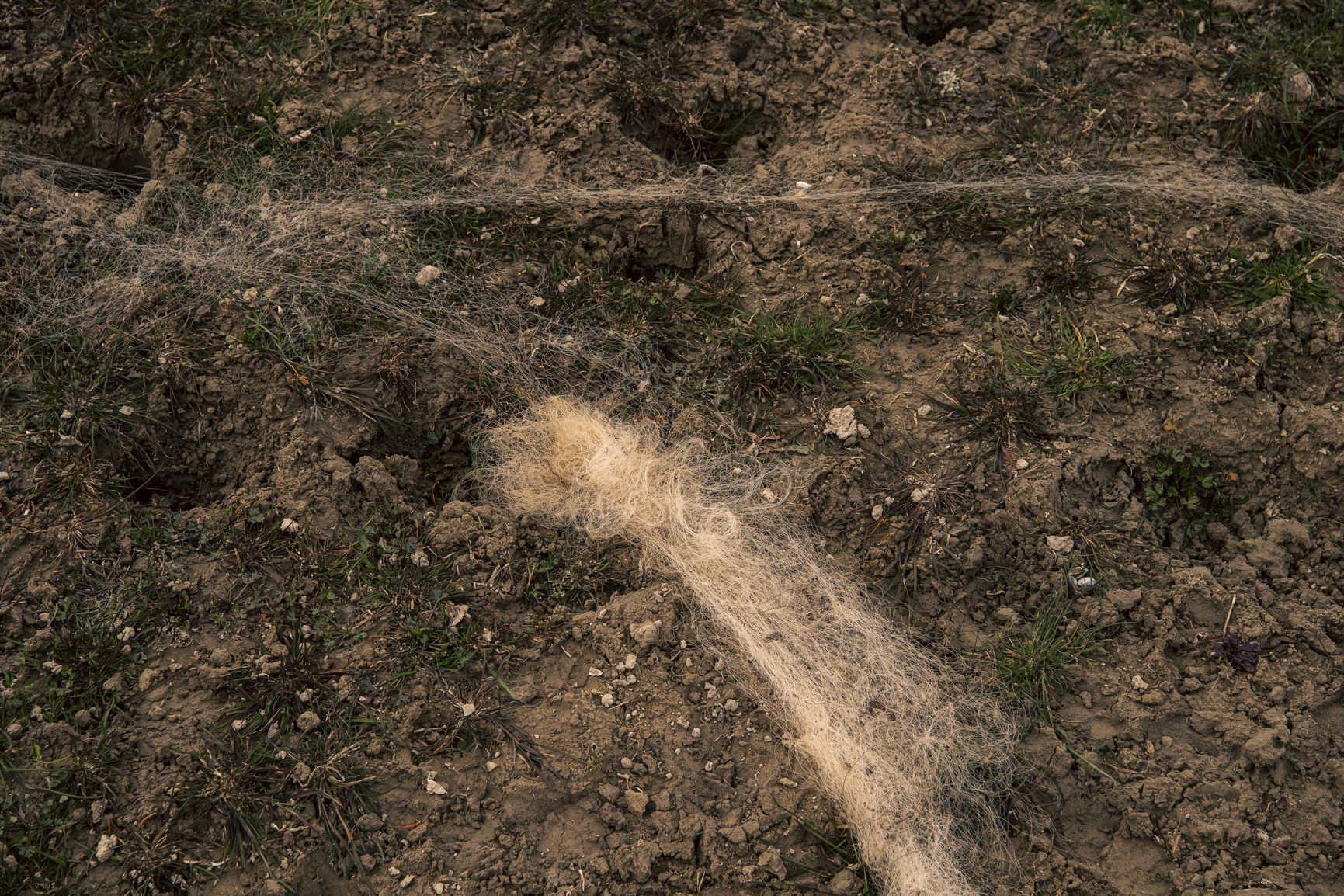
Photographer: Atdhe Mulla
As he stands by the shore of Prespa, Koço Trajçe, 69 years old, born and raised in Kallamas, gazes sadly at the area that was once underwater. With his hand, he points to an invisible line on the horizon, where just a year ago the calm waters of the lake extended.
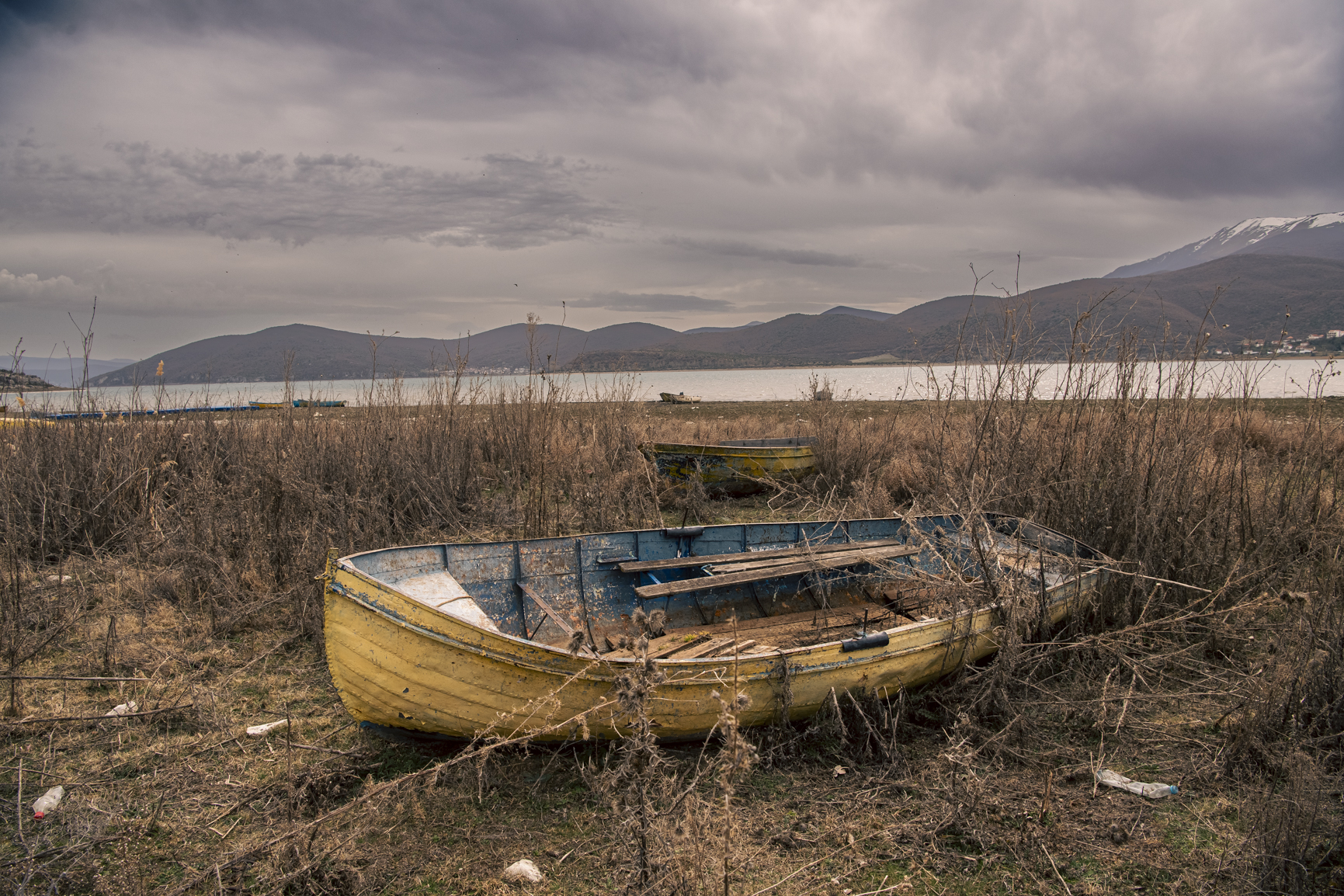
Photographer: Atdhe Mulla
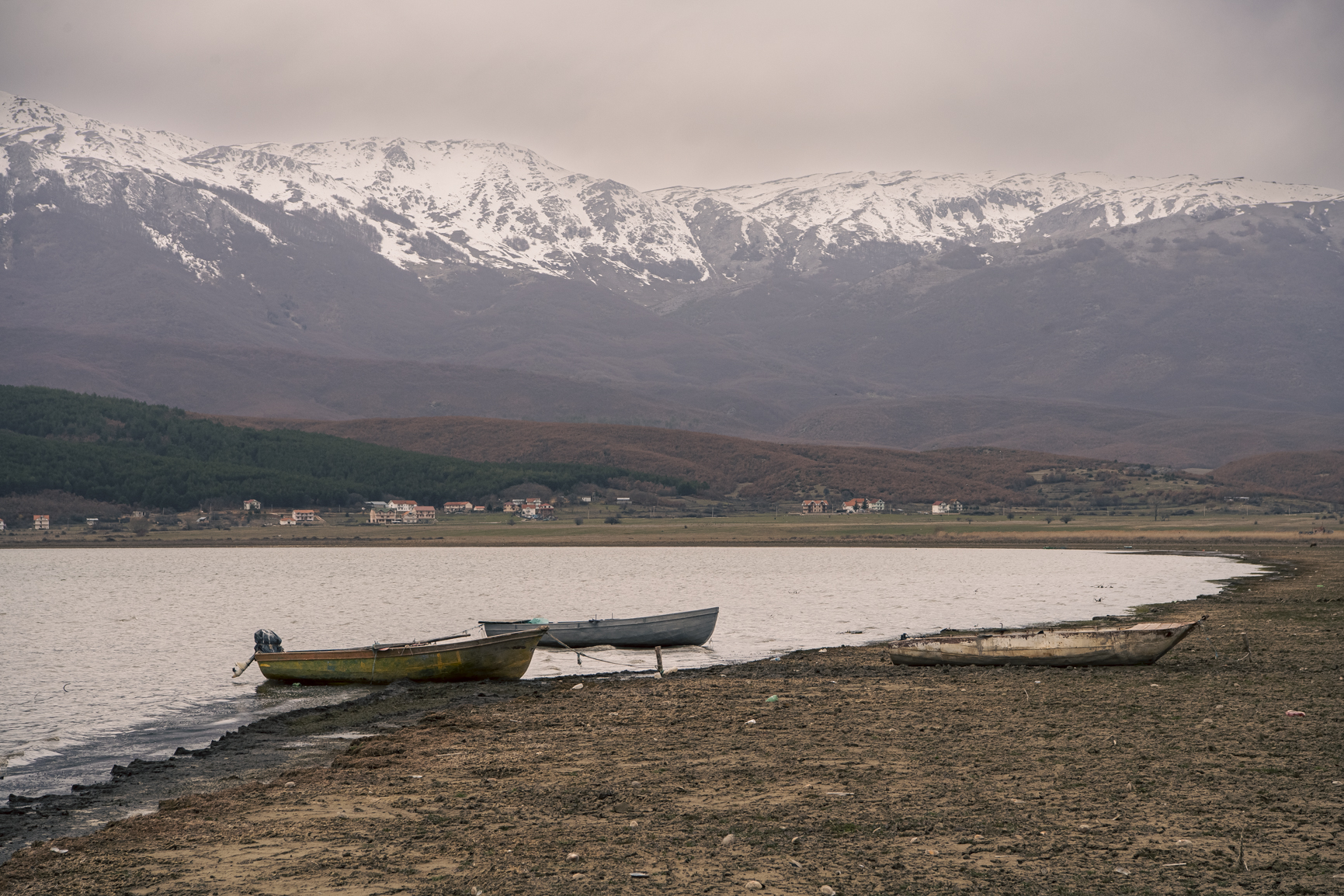
Photographer: Atdhe Mulla
‘The lake’s water level has dropped a lot this year. There has been no snow, so no water has come. Just imagine how much it will drop when the heat sets in, because not a single centimeter of new water has arrived,’ he says.
Trajçe recalls that the decline in the water level of Great Prespa began in the 1990s, but at that time, the changes were temporary. ‘For at least 10 years, the water level has just been dropping,’ he says, worried.
According to the 69-year-old, the lake was once filled by the snow, the snowfall of which has been increasingly absent in the southeast in recent years.
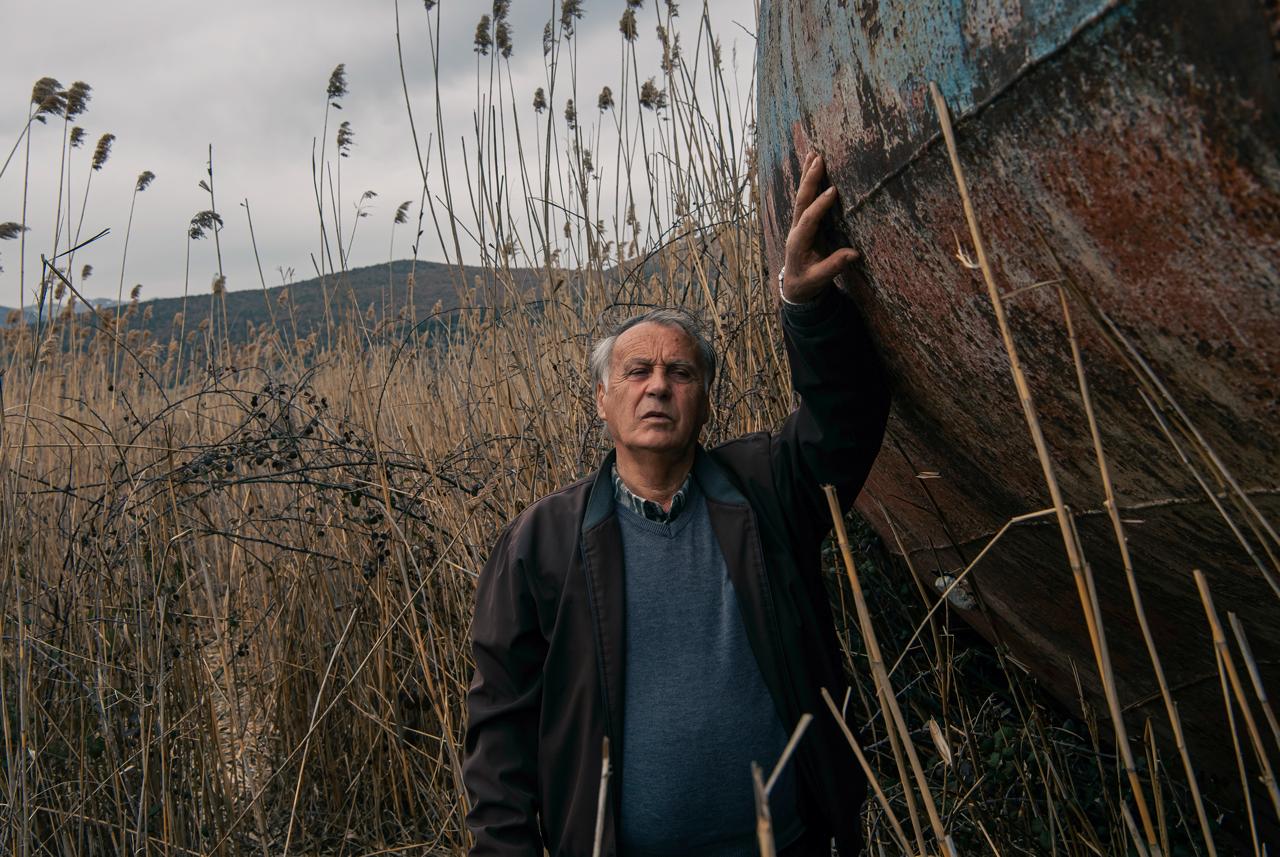
‘Last year, it rained a little, twice. This year, it rained very little, and it was dry, so it didn’t have any impact,’ he adds.
A former fisherman, he now leads an association focused on fishing and witnesses the crisis the lake’s ecosystem is going through. ‘It will drop even more,’ he emphasizes.
The lake is evaporating
Kallamasi is the village where the retreat of the lake’s water is most evident. However, the continuous shrinkage of the waters in Great Prespa has rendered the automatic monitoring station for the lake’s water level in Pustec (Liqenas) useless. Due to the extended drought, measurements are now taken through observation.
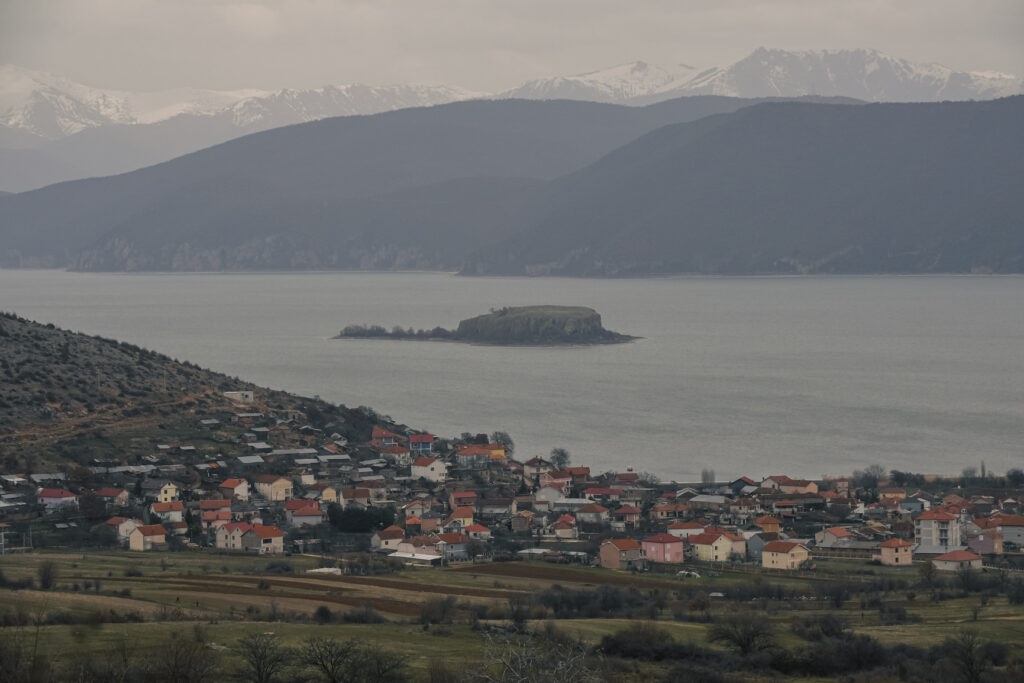
Photographer: Atdhe Mulla
Data from IGJEO reveals that the water level of Prespa Lake has reached its lowest recorded point in centuries, marking an alarming drop of over 11 meters. In 2024, the lake’s level stood at approximately 841 meters above sea level, while the historical maximum level of Prespa was 852 meters.
‘Studies show that between 1984 and 2020, the lake has lost around 7% of its surface area and half of its volume. This notable decline is closely connected to climate change,’ explains Emanuela Kiri, a hydrogeologist at the Institute of Geosciences.
The water loss in Great Prespa is a result of a combination of natural and human-induced factors.
- Climate Change: Rising global temperatures and changing rainfall patterns have led to greater evaporation of water and prolonged drought periods.
- Agricultural Irrigation: The use of water for farming in the region has reduced the amount of water flowing into the lake.
- Urbanization and Infrastructure Development: The construction of infrastructure in the region has impacted the natural flow of water, decreasing the lake’s water supply.
- Water Sources: Channels and underground sources that feed the lake have also been affected by human activities and climate change.
- Water Losses: The underground water flow from Prespa Lake to Lake Ohrid impacts the volume of water in Prespa Lake.
Despite these factors, climate change—manifested in rising temperatures and unstable rainfall—remains the primary driver of the lake’s drying.
‘From a hydrogeological perspective, climate change has influenced the water level and surface area of Prespa Lake in multiple ways. The increase in temperatures and lack of precipitation have amplified evaporation, leading to the drop in water levels and the reduction of the lake’s surface,’ highlights Kiri from IGJEO.
Material for Prespa – E. Kiri (1)Read more
Hydrobiologist Spase Shumka believes that the main threat to the lake is entirely linked to the weather. The rise in temperatures, changes in precipitation patterns, and the diminishing snow cover are the primary concerns, he says.
‘According to all water balance models, the increase in environmental and water temperatures causes not only fluctuations but also a tendency to decrease the water level, even with consistent rainfall. In other words, we might experience enough rainfall, but evaporation levels are high,’ argues hydrobiologist Shumka.
These changes are leaving a deep impact on the aquatic ecosystems of Prespa Lake, resulting in significant consequences for biodiversity and water quality.
‘The lowering of water levels disrupts or eliminates lakeshore habitats that serve as shelters for many endemic species such as compressed worms, roundworms, mollusks, sponges, fish, etc. These species, which rely on these habitats for feeding and reproduction, are profoundly affected,’ notes Professor Shumka.
A Critical Year for the Lake
The year 2025 is expected to be crucial for the lake, with the ongoing lack of rainfall and rising temperatures potentially causing even further reduction in its size. The outlook is more pessimistic than ever, as the water level has already dropped by 10-15 cm in the first three months of the year.
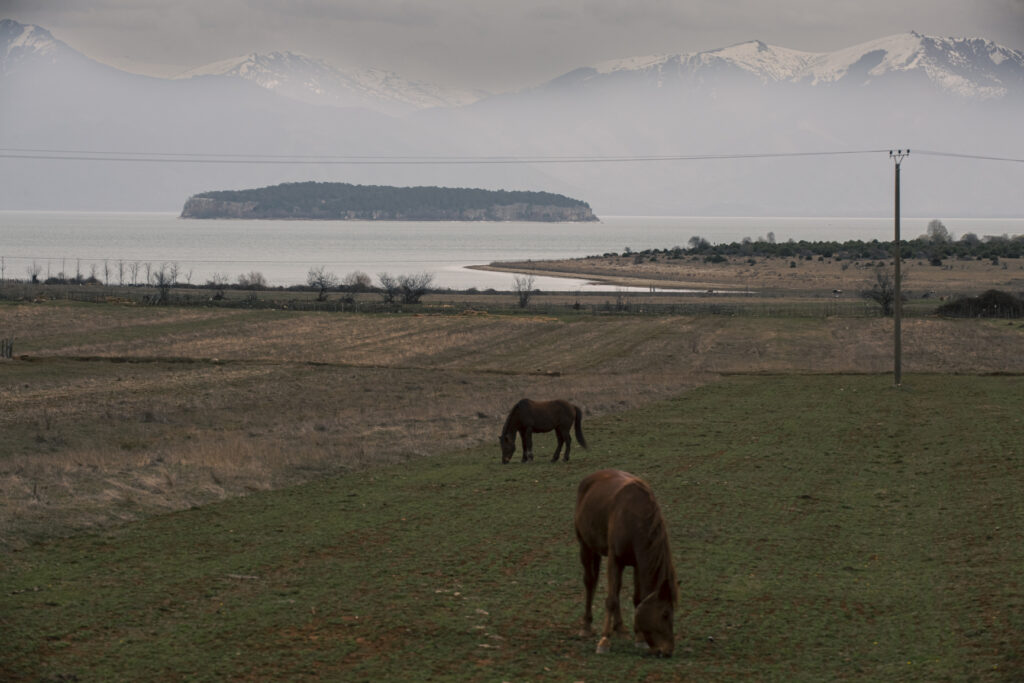
Photographer: Atdhe Mulla
‘The situation will become critical this summer if sufficient rainfall does not occur during spring. However, heavy rainfall is needed to compensate for the water losses of the winter months,’ says Spase Tërpo, who has been monitoring the water levels of Lake Prespa in Pustec for the Institute of Geosciences.
As the shrinkage of the lake continues, experts are predicting an even more challenging year. Hydrogeologist Emanuela Kiri warns that the situation will worsen in the coming months, with the most significant drop expected in the autumn months.
‘The water level of Lake Prespa is expected to decrease even further over the coming months, reaching its lowest point in September or October, when underground water levels usually also hit their annual minimum,’ explains Kiri.
‘Turn your eyes towards the lake’
Experts call for urgent measures to mitigate the negative effects of climate change on the Great Prespa Lake.
‘It will be important to include measures for adaptation to climate change in the update of management plans for protected areas in order to better respond to the negative impacts of climate change,’
Prespa-Ohrid Nature Trust (PONT) International Organization
Since the Prespa Lake is divided between three countries, cross-border cooperation in adapting to the negative impacts of climate change is very important, according to PONT.
‘Restoration techniques have been shared among the three countries, and conservation interventions are being implemented in all countries. Cross-border cooperation is important to harmonize strategies and plans, while most of the implementation is done individually in each country.’
Meanwhile, hydrobiologist Spase Shumka says that protecting the lake requires clear and effective measures to prevent its degradation.
One of the most important steps is reducing water use, especially in Greek and Macedonian areas, where intensive agriculture requires large amounts of water. For this, innovative water-saving techniques should be applied, such as drip irrigation systems. Another necessary measure is the cultivation of plants that require less water, favoring drought-resistant agricultural crops, such as fruit trees.
Experts suggest that to improve water resource management, it is essential to collect and store rainwater, which can be used for irrigation and agriculture. Another major problem is the discharge of wastewater into the lake, which accelerates pollution and eutrophication. The implementation of modern wastewater treatment methods would help protect water quality.
Cross-border cooperation is essential by creating a joint monitoring mechanism and ensuring that decisions are based on scientific data.
Conclusion
The water leaving the Great Prespa Lake brings not only consequences for fishermen and biodiversity but also for rural life in this area.
The village of Kallamas, like many other rural areas in Albania, has experienced depopulation. The few residents who remain, mostly elderly, watch with sorrow as Prespa, a source of livelihood and heritage, shrinks day by day.
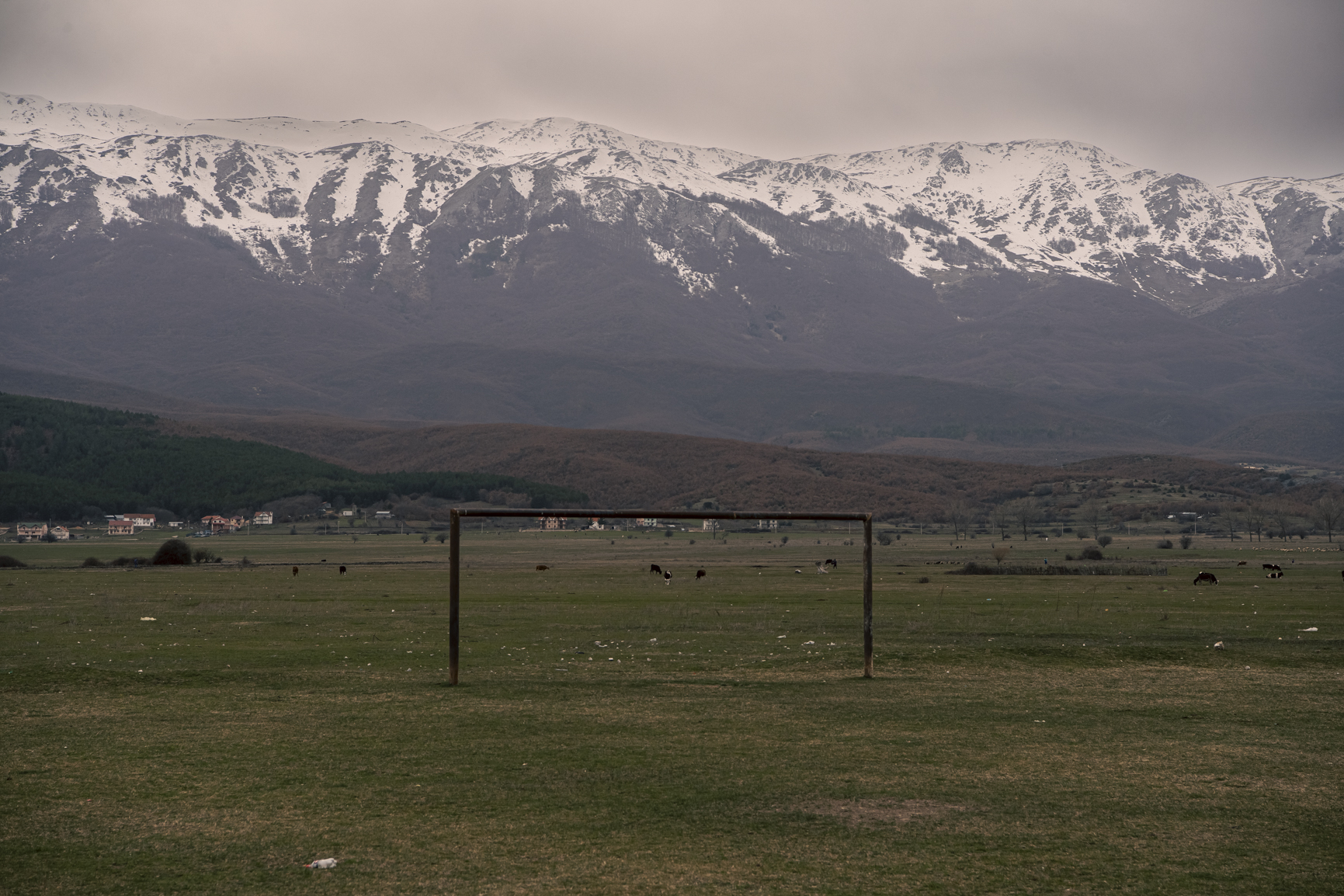
Photographer Atdhe Mulla
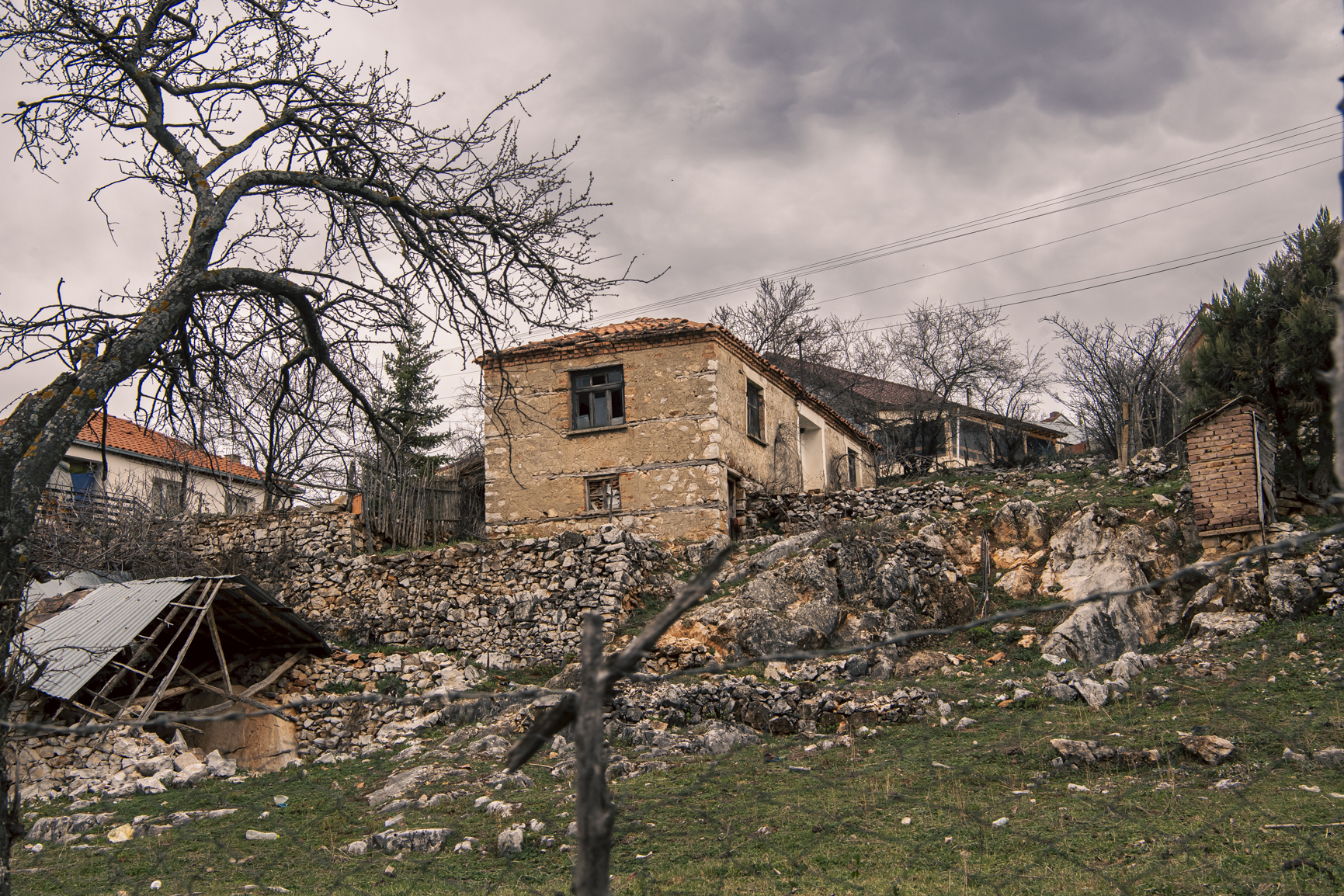
Photographer Atdhe Mulla
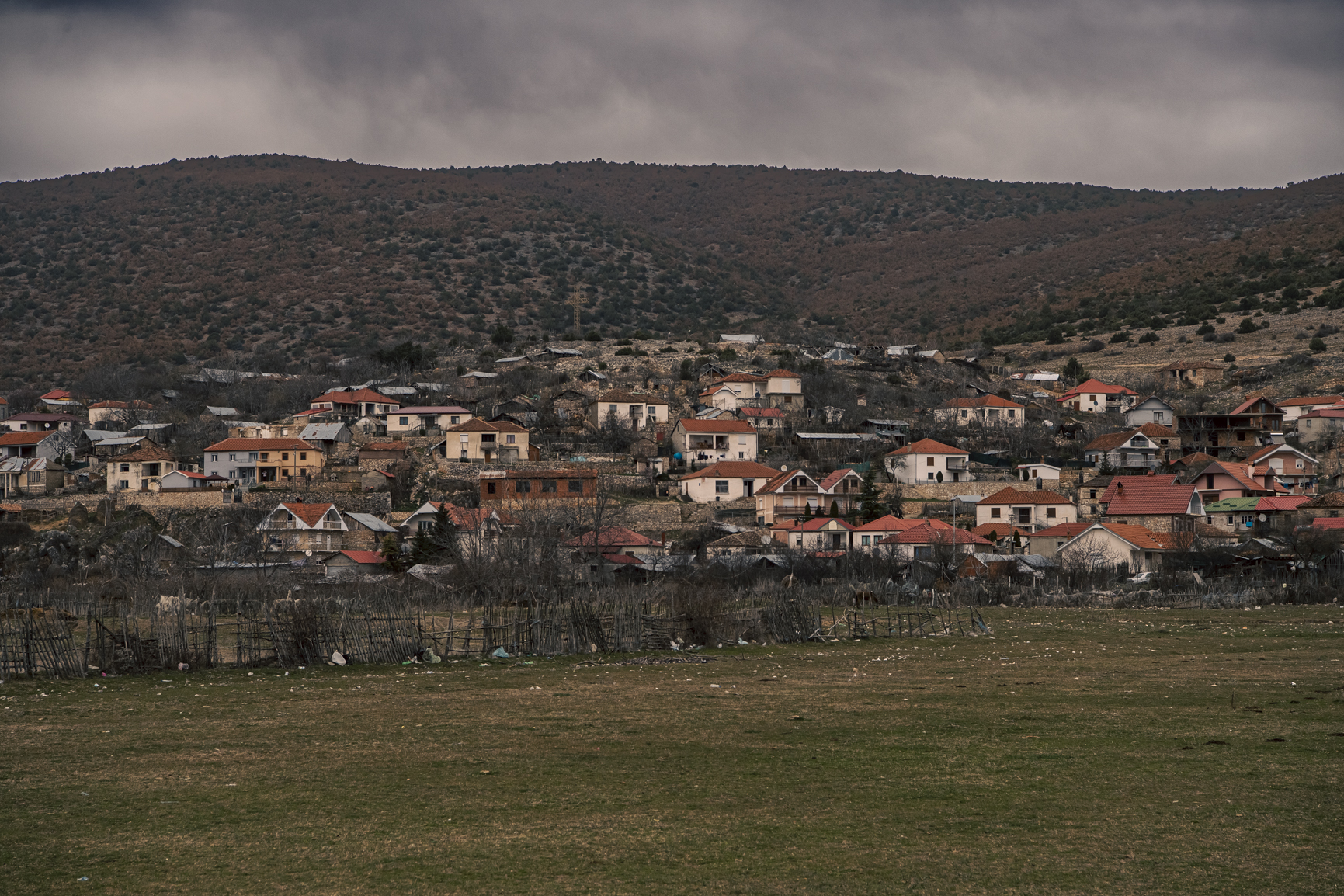
Photographer Atdhe Mulla
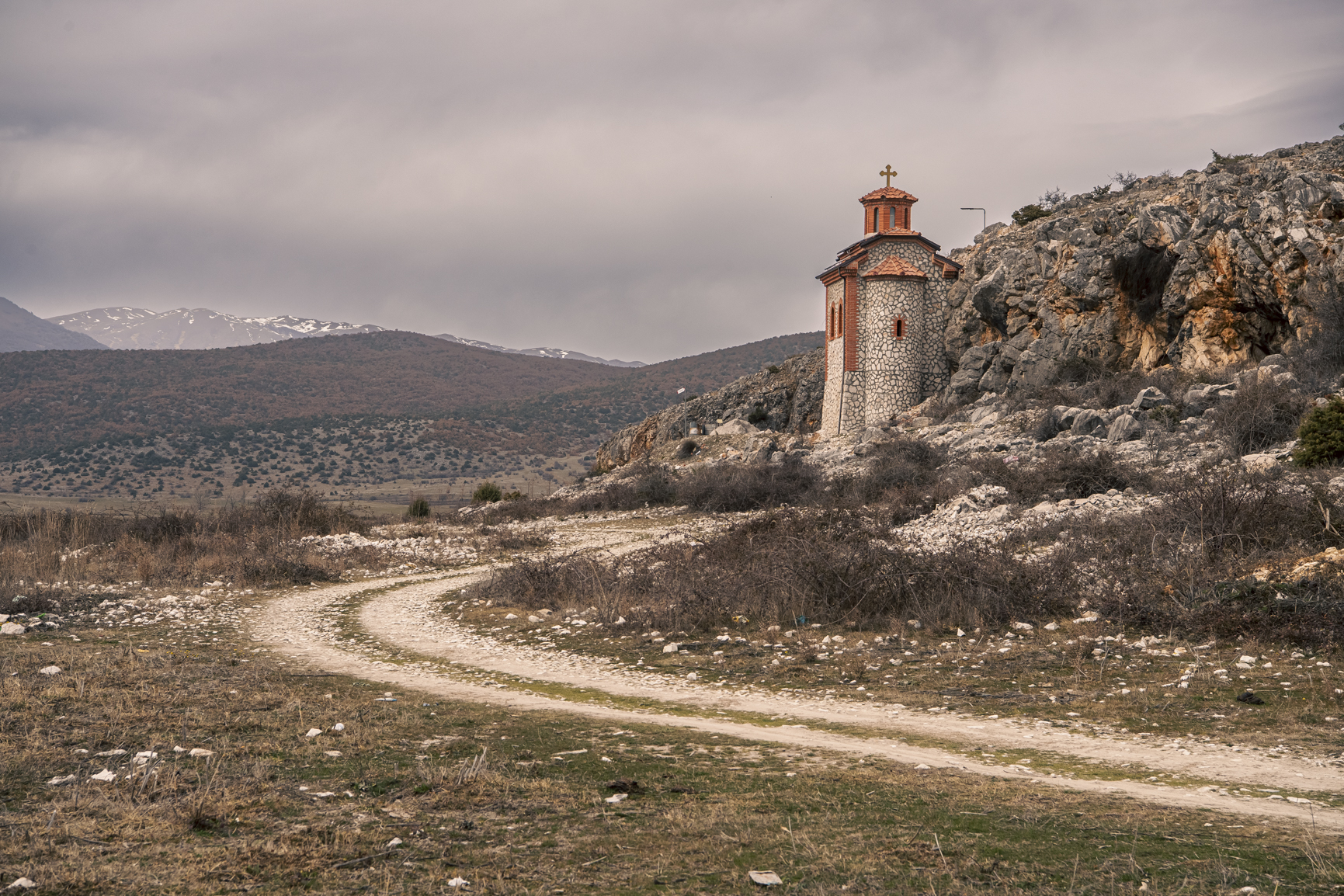
Photographer Atdhe Mulla
As he stands in a landscape that was once underwater, Koço Trajçe sadly remarks, ‘When the heat and drought come, it will shrink by over 100 meters. After that, who knows what we will witness…’

